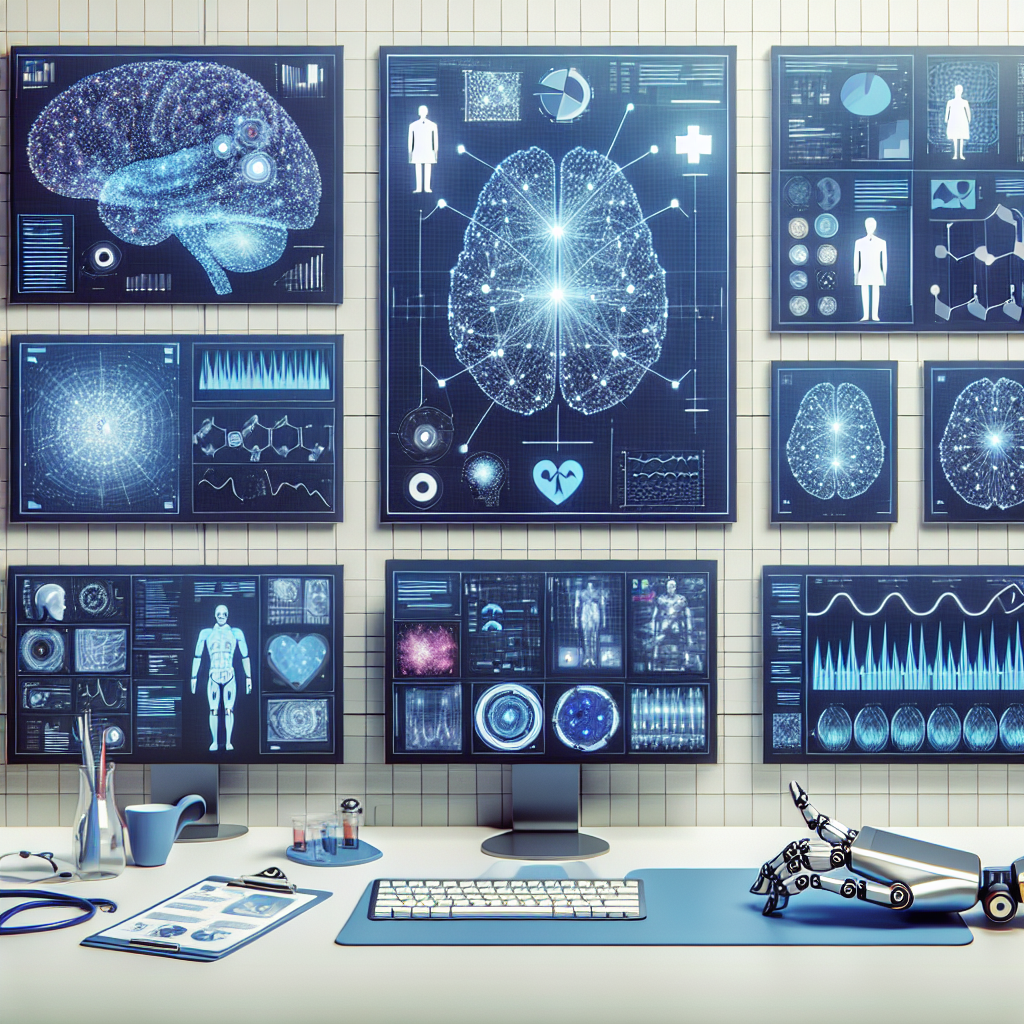The Future of AI in Health Informatics
Artificial intelligence (AI) has been revolutionizing various industries, and healthcare is no exception. In recent years, AI has made significant advancements in health informatics, the field that deals with the acquisition, storage, retrieval, and use of healthcare information. From improving patient care to streamlining administrative tasks, AI is poised to transform the healthcare industry in the coming years.
AI in Healthcare: Current Applications
AI is already being used in various aspects of healthcare, including:
1. Diagnostics: AI algorithms can analyze medical images, such as X-rays and MRIs, to detect abnormalities that may be missed by human radiologists. This can help healthcare providers make more accurate diagnoses and develop more effective treatment plans.
2. Personalized Medicine: AI can analyze large datasets, such as genetic information and medical records, to identify patterns and predict how patients will respond to different treatments. This can help healthcare providers tailor treatment plans to individual patients, leading to better outcomes.
3. Administrative Tasks: AI-powered tools can automate administrative tasks, such as scheduling appointments, processing insurance claims, and managing electronic health records. This can free up healthcare providers to focus on patient care and reduce the risk of errors.
4. Drug Discovery: AI algorithms can analyze vast amounts of data to identify potential drug candidates and predict their efficacy and safety. This can accelerate the drug discovery process and lead to the development of new treatments for various diseases.
The Future of AI in Health Informatics
The future of AI in health informatics is bright, with the potential to further improve patient outcomes, increase efficiency, and reduce healthcare costs. Some of the key areas where AI is expected to have a significant impact in the coming years include:
1. Predictive Analytics: AI algorithms can analyze patient data, such as medical history, lab results, and vital signs, to predict the likelihood of developing certain conditions or complications. This can help healthcare providers intervene early and prevent adverse outcomes.
2. Remote Monitoring: AI-powered devices, such as wearables and sensors, can continuously monitor patients’ health metrics and alert healthcare providers to any abnormalities. This can enable early intervention and reduce the need for frequent in-person visits.
3. Virtual Assistants: AI-powered virtual assistants can help patients schedule appointments, access medical information, and receive personalized health recommendations. This can improve patient engagement and adherence to treatment plans.
4. Precision Medicine: AI can analyze genetic information, lifestyle factors, and other data to identify optimal treatment plans for individual patients. This can lead to more personalized and effective care.
5. Clinical Decision Support: AI algorithms can provide healthcare providers with evidence-based recommendations for diagnosis and treatment. This can help reduce diagnostic errors and improve patient outcomes.
FAQs
Q: Is AI in health informatics safe and secure?
A: AI in health informatics is subject to strict regulations and guidelines to ensure patient data privacy and security. Healthcare organizations are required to comply with regulations such as HIPAA (Health Insurance Portability and Accountability Act) to protect patient information.
Q: Will AI replace healthcare providers?
A: AI is not meant to replace healthcare providers but to assist them in delivering better care. AI can automate routine tasks, analyze large amounts of data, and provide evidence-based recommendations, allowing healthcare providers to focus on complex clinical decisions and patient interactions.
Q: How can healthcare providers prepare for the future of AI in health informatics?
A: Healthcare providers can prepare for the future of AI by investing in training and education for their staff, adopting AI-powered tools and technologies, and collaborating with AI developers and researchers to stay at the forefront of innovation.
In conclusion, the future of AI in health informatics holds great promise for improving patient outcomes, increasing efficiency, and reducing healthcare costs. By leveraging AI-powered tools and technologies, healthcare providers can deliver more personalized and effective care, leading to better health outcomes for patients. It is essential for healthcare organizations to embrace AI and prepare for the future of health informatics to stay competitive in the rapidly evolving healthcare landscape.

